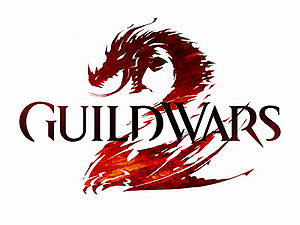4-Player is a new, weekly video game column examining gaming culture on campus and online, documenting a previously unrepresented segment of BU’s culture. 4-Player is co-written by Jon Christianson, Ashley Hansberry, Allan Lasser, and Burk Smyth.
I’ve been playing MMOs for around 10 years now. I started with RuneScape, the venerable browser based game that just about every middle schooler has played. At some point, I became a “member,” paying $5 a month for the privilege of more skills, quests, and areas. In the spring of 2005, I bought World of Warcraft. I paid $15 a month for 18 months. I’ve been an MMO addict since then. I’ve gone back to WoW a few times and have played everything from dead games like Star Wars Galaxies, to WoW “killers” like Warhammer Online, and stranger, more freeform fare like EVE. All in all, I’ve played around 15 or 20 different MMOs, and I’ve happily paid $15 a month for just about all of them.

But that’s beginning to change. MMOs—both brand new games and those already in existence–are beginning to go free to play. This is coupled with a marked lack of success for subscription-based games. Star Wars: The Old Republic, one of the biggest MMO launches of all time and a game that was supposed to represent serious competition for World of Warcraft, added a free to play option less than a year after its launch. Even World of Warcraft has been hit. The game is now down to around 9.6 million subscribers (still a huge number, but definitely less than its nearly 12 million subscriber peak). Blizzard Entertainment made the game free to play up to level 20 in October of 2011. Other big ticket MMOs—The Secret World, The Lord of the Rings Online, and others—have either gone completely free to play or added a subscription free option.
The F2P model comes with a lot of baggage. The style is often associated with harsh restrictions, long, arduous grinds, and expensive cash stores (i.e. places where you spend real money to buy in-game items or bonuses). But that is beginning to change. Guild Wars 2, my current MMO of choice, is not lacking any genre standard features. And, like the original Guild Wars, there’s no subscription fee; the only required purchase is the game itself. The game does have a cash shop, but none of the items available are required to enjoy everything the game has to offer. Honestly, ArenaNet could stand to work on making the shop more attractive.
Guild Wars 2 was certainly a gamble, and it’s one that has paid off. ArenaNet has sold a reported 3 million copies of the game; a number that I’m sure has much to do with the lack of any subscription fees. It’s a unique system they’re dealing with. Traditionally, F2P MMOs weren’t really free to play. Most offered only a section of the game for free with the rest available either á la carte or through a subscription fee. The system that ArenaNet is operating with would be better called “buy to play.” You purchase the game and have access to everything. Other companies have begun to follow GW2’s example. FunCom recently made the cult gem The Secret World buy to play, and they’ve seen a 30% increase in sales. Quite frankly, subscription MMOs are beginning to look antiquated.
Despite Guild Wars 2 and The Secret World’s successes, the free to play model still has some strides to make. Star Wars: The Old Republic’s conversion to the F2P model was considered so poor that most people recommended you just pay the subscription fee anyway. Regardless, F2P is beginning to feel more and more like the way of the future. It will be incredibly interesting to see which direction upcoming releases The Elder Scrolls Online and Blizzard’s Titan project go in. Hopefully, it’s the cheaper one.
